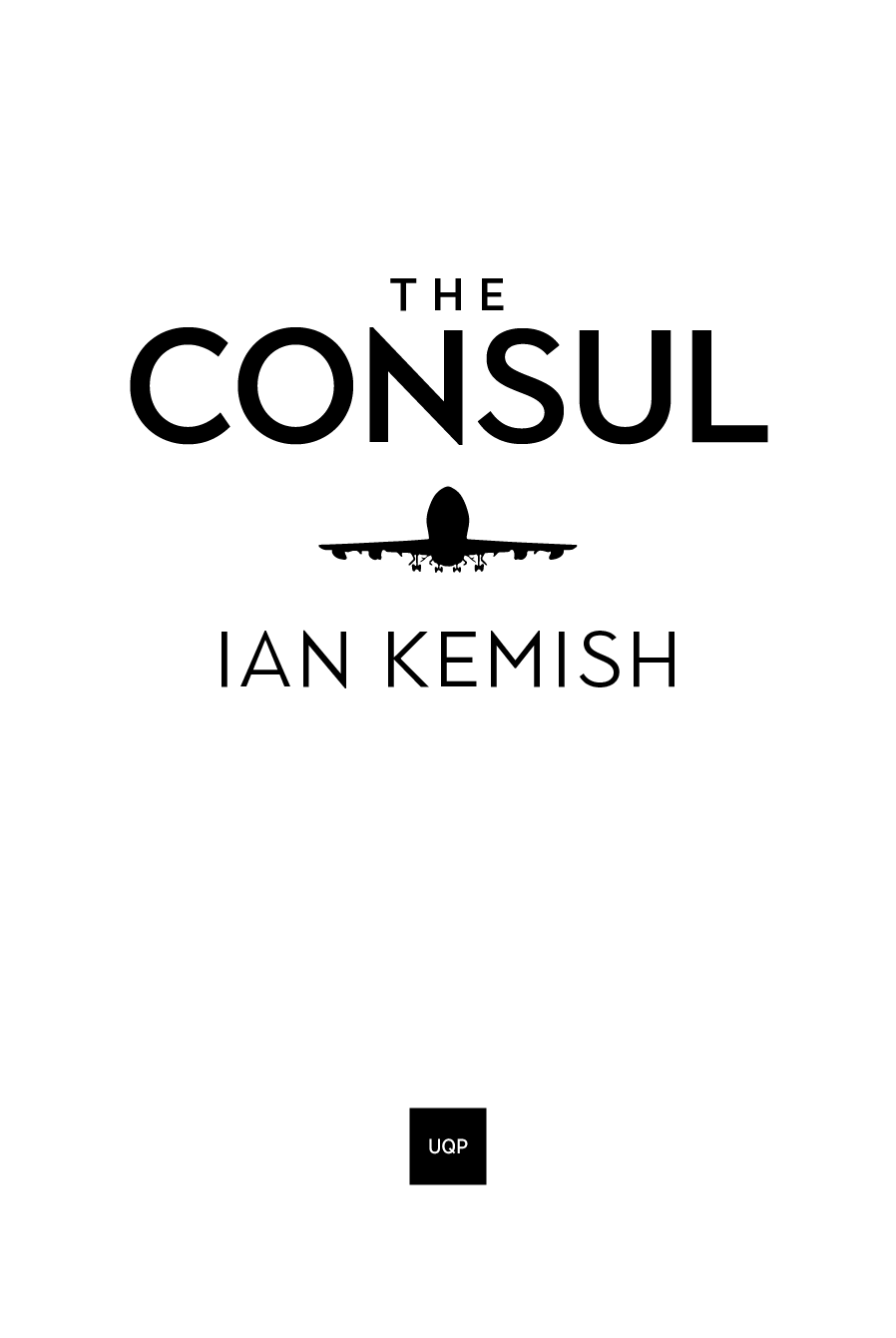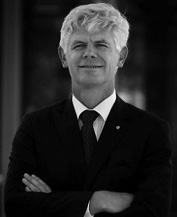 Ian Kemish AM served as Australian High Commissioner to Papua New Guinea, Ambassador to Germany, Head of the Prime Ministers international division, and Head of the consular service in a diplomatic career that spanned twenty-five years. He was awarded membership of the Order of Australia for his leadership of Australias response to the 2002 Bali bombings. He is an adjunct Professor in history at the University of Queensland, a non-resident fellow with the Lowy Institute, a director of the AustraliaIndonesia Centre and an Honorary Fellow of Deakin University. Ian is also actively engaged in the international development and not-for-profit sectors, and writes regularly on Indo-Pacific strategic issues.
Ian Kemish AM served as Australian High Commissioner to Papua New Guinea, Ambassador to Germany, Head of the Prime Ministers international division, and Head of the consular service in a diplomatic career that spanned twenty-five years. He was awarded membership of the Order of Australia for his leadership of Australias response to the 2002 Bali bombings. He is an adjunct Professor in history at the University of Queensland, a non-resident fellow with the Lowy Institute, a director of the AustraliaIndonesia Centre and an Honorary Fellow of Deakin University. Ian is also actively engaged in the international development and not-for-profit sectors, and writes regularly on Indo-Pacific strategic issues.
F or Roger
Isnt it a great feeling, knowing were doing this for Australia?
Contents
Foreword
Australias consular service is among the best in the world, and Ian Kemish has undertaken the important task of documenting its work over the past twenty years.
It is vital that Australians know more about the work of the specialists within the Department of Foreign Affairs and Trade (DFAT) who help Australians when things go wrong for them while overseas. Ian is the right person to tell the story as he managed DFATs consular service in the early 2000s, during a time when the international environment was redefined by terrorism. He led the men and women of the service in responding to the September 11 attacks in 2001, the Bali bombings in 2002 and numerous other challenges. This book is also Ians own story.
I came to know Ian well when he was serving as Australias High Commissioner in Papua New Guinea from 2010 to 2013 a pivotal strategic role that also involves its fair share of consular crises. He supported my determination first as the oppositions spokesperson on foreign affairs, and from 2013 as Australias Minister for Foreign Affairs to engage closely with PNG as our nearest neighbour.
Foreign ministers and their officials must work closely together in responding to global challenges, while pursuing trade and investment opportunities, protecting the rules-based international order, working to keep our region stable and helping Australians in trouble overseas.
Each year, DFATs consular officers assist thousands of Australians, people injured, assaulted, robbed, hospitalised, kidnapped, arrested, detained or facing other challenges overseas. Involvement in this area of work can be a life-changing experience, particularly when responding to a major crisis. I know this from my experience leading the Australian response to the downing of Malaysia Airlines Flight 17 over eastern Ukraine an atrocity that took the lives of 298 people, including thirty-eight who called Australia home. Supporting the families of the MH17 victims was one of the most challenging, and emotional, experiences of my career.
The last twenty years have seen the progressive modernisation of the Australian consular service in response to the technology revolution, as well as changing public expectations and travel patterns. As foreign minister, I launched a comprehensive strategy in 2017 to ensure the service maintained worlds best practice, expanding victim support services, while promoting a culture of more responsible travel and utilising digital technologies to promote better public engagement with the Smartraveller advisory service. These reforms were building on the work of past ministers and consular staff, including Ian and his colleagues.
It will be important for the consular service to remain responsive to changing trends as Australians emerge from pandemic restrictions and once again venture out into the world. The conflict that erupted in Eastern Europe in the first half of 2022 reminds us all of the ever-changing risks in the international environment. I am confident that our consuls will continue their commitment in the service of their fellow Australians, as Ian has eloquently articulated in this timely account of their work.
The Hon Julie Bishop
Prologue
A Call in the Night
It was about three in the morning on 13 October 2002 when the home phone shattered the silence of our bedroom in the quiet Canberra suburb of Pearce. My wife, Roxanne, who has always been quicker to surface from sleep, picked up the receiver. She listened for a moment, then said, Thats okay, Ric Yes, of course, hes just here. She passed me the phone. Its Ric Smith calling from Jakarta.
Ric Smith was in the process of winding up his posting as Australias ambassador to Indonesia. It was about midnight in Jakarta, where he was attending a farewell dinner in his own honour, hosted by the Canadian ambassador. Gruff and battle-scarred, Ric was a true servant of the national interest, having also been ambassador to China, and with previous postings in New Delhi, Tel Aviv, Manila and Honolulu. We all liked him despite his hard-bitten style, because he took people on their merits, meant what he said and followed principle rather than fashion. He was a generation older than me, and a legend of the Australian diplomatic service.
Ric was grave, courteous and to the point. Sorry to wake you, mate, he said, but Ive just been speaking to Ross Tysoe, and youve got some work ahead of you.
Ross Tysoe was the Australian consul-general in Bali. He had rung in to report that there had been at least one, and probably two major explosions in the Kuta nightclub strip in Denpasar a popular hangout for young Australians and other Western tourists. Ross had immediately gone to the scene. It was clear that there had been a significant number of casualties, including some Australians, but the situation was chaotic and the scale of the emergency unclear.
Ric said he understood from Ross that he had already been in touch with the standing twenty-four-hour Consular Emergency Centre in Canberra, which reported to me. I think this one is going to be a bit beyond them, he said. My guess is were looking at multiple medical evacuations, and youre probably going to need to get Defence involved. Sorry to start with you, but there it is. The call probably lasted less than two minutes. Ric had given me an efficient heads-up and left me to get on with it. He had other calls to make.
Confusion and scant information were nothing new. It always started like this. Id taken a few similar calls in the two and a half years since Id been appointed as the assistant secretary, or head, of the consular branch at the Department of Foreign Affairs and Trade in Canberra. In this role, at the hub of Australias global diplomatic network, I was responsible for leading and coordinating DFATs consular function its support for Australians travelling and living overseas. This support is provided by the men and women of DFATs consular service, who, like other departmental staff, rotate through their careers between headquarters and Australias overseas missions. The consular service also steps forward to coordinate the federal governments response when Australians are affected by a major crisis overseas.
This is a field of the public service that passes largely unnoticed by the 99 per cent of Australian travellers who have no need of it. Most Australians can confidently expect not to be assaulted, hospitalised or arrested or even die while travelling abroad. Statistically, Australians are no more likely to encounter accident, injury or other trouble overseas than they are in Australia. But it does happen, every day. It also seems that when a major transportation accident, militant attack or natural disaster unfolds no matter where it is there will inevitably be some Australians mixed up in it. We used to say that if a plane went down between Tashkent and Vladivostok, there would almost certainly be an Australian on board. Australian consuls respond when misfortune or tragedy strikes. Their work often involves supporting people at the most difficult moment of their lives.


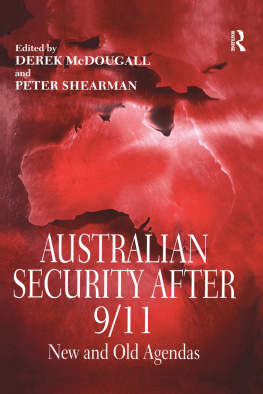
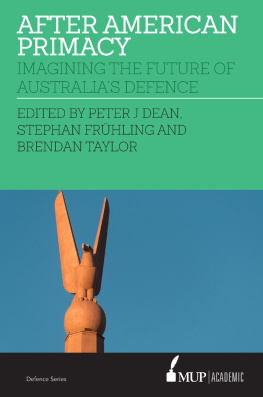
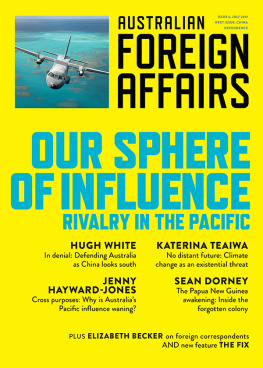
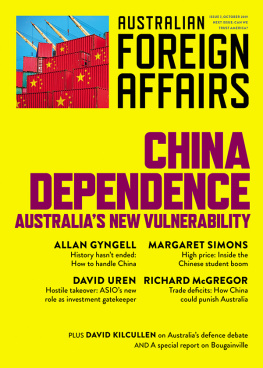
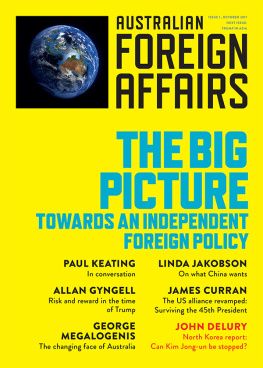
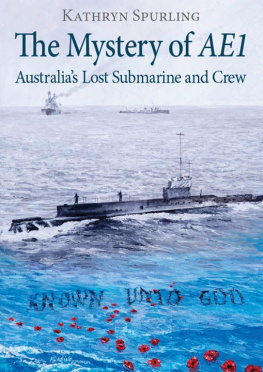
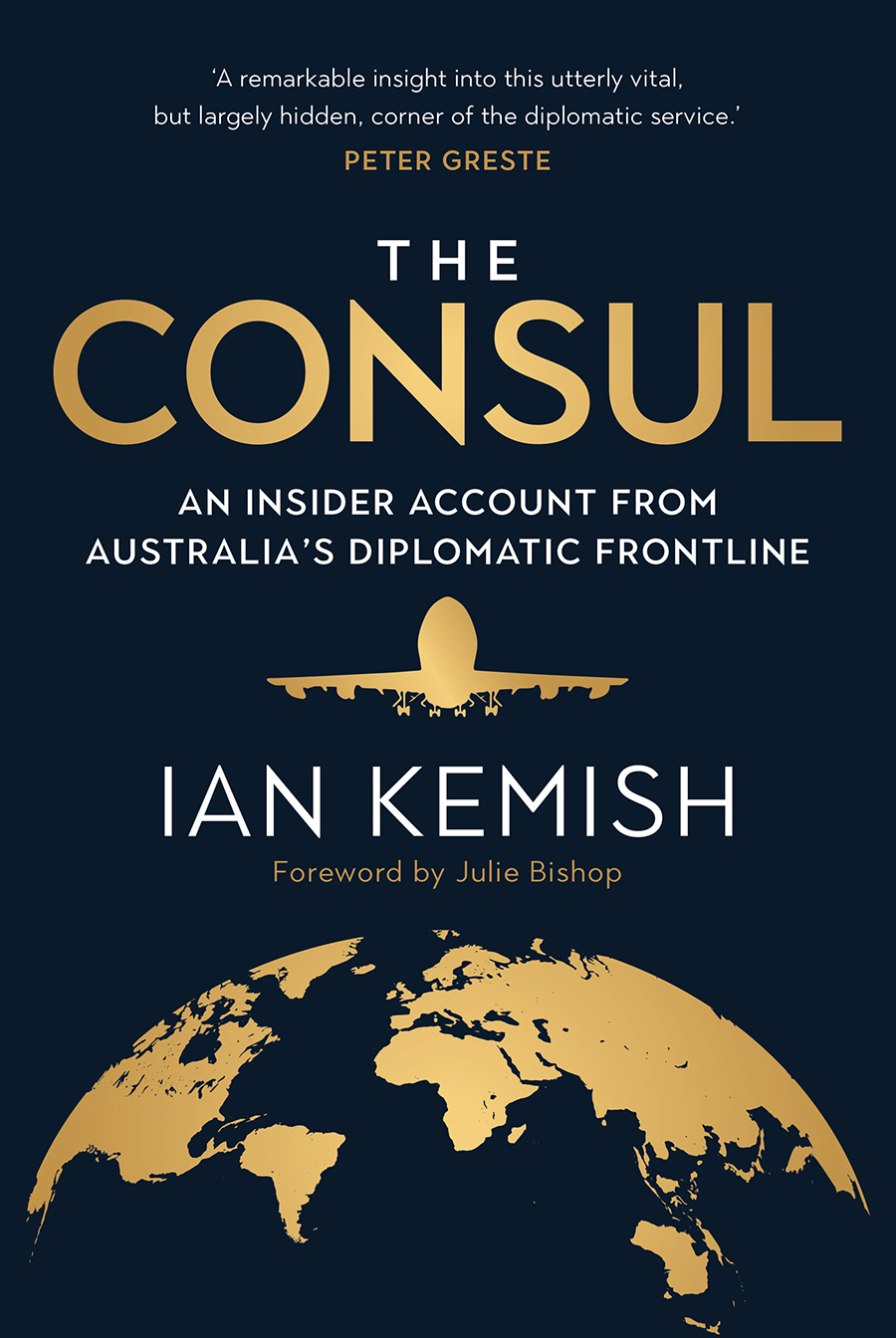
 Ian Kemish AM served as Australian High Commissioner to Papua New Guinea, Ambassador to Germany, Head of the Prime Ministers international division, and Head of the consular service in a diplomatic career that spanned twenty-five years. He was awarded membership of the Order of Australia for his leadership of Australias response to the 2002 Bali bombings. He is an adjunct Professor in history at the University of Queensland, a non-resident fellow with the Lowy Institute, a director of the AustraliaIndonesia Centre and an Honorary Fellow of Deakin University. Ian is also actively engaged in the international development and not-for-profit sectors, and writes regularly on Indo-Pacific strategic issues.
Ian Kemish AM served as Australian High Commissioner to Papua New Guinea, Ambassador to Germany, Head of the Prime Ministers international division, and Head of the consular service in a diplomatic career that spanned twenty-five years. He was awarded membership of the Order of Australia for his leadership of Australias response to the 2002 Bali bombings. He is an adjunct Professor in history at the University of Queensland, a non-resident fellow with the Lowy Institute, a director of the AustraliaIndonesia Centre and an Honorary Fellow of Deakin University. Ian is also actively engaged in the international development and not-for-profit sectors, and writes regularly on Indo-Pacific strategic issues.